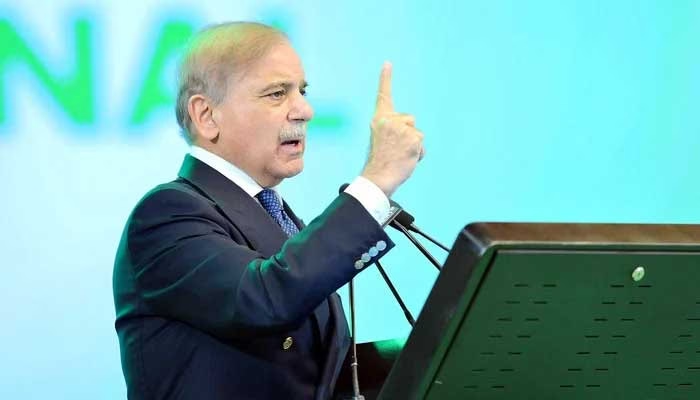Prime Minister Shehbaz Sharif has directed the government to develop a Pakistan investment roadmap that focuses on promoting trade, economic reforms, and sectoral growth. Chairing a high-level meeting, the premier emphasized that agriculture, IT, minerals, tourism, and renewable energy are key sectors that can attract significant foreign investment and boost Pakistan’s exports.
Pakistan Investment Roadmap and Reform Agenda
The call for a Pakistan investment roadmap comes at a time when the government is working to enhance economic stability and expand trade opportunities. PM Shehbaz Sharif instructed ministers to prepare a reform agenda with practical, feasible projects that can be implemented immediately.
He stressed that every ministry must identify opportunities to complete ongoing projects on time while introducing new initiatives that align with the government’s broader development goals. The roadmap, he said, should not just target short-term gains but ensure long-term sustainability for the economy.
Key Sectors Driving the Pakistan Investment Roadmap
The Pakistan investment roadmap highlights five main sectors:
- Agriculture – Pakistan’s agriculture sector contributes nearly 19% to GDP and employs about 37% of the labor force. Investment in modern farming technologies, irrigation systems, and food processing could significantly raise exports.
- Information Technology – Pakistan’s IT exports crossed $3 billion in FY2024, and the government is targeting $5 billion by 2027. Expanding infrastructure, digital skills, and innovation hubs will be central to this plan.
- Minerals – With rich reserves of copper, coal, and rare earth elements, the mineral sector can become a backbone of the Pakistan investment roadmap if explored sustainably.
- Tourism – Pakistan’s tourism industry, valued at $3.1 billion in 2023, has the potential to expand rapidly with better infrastructure, hospitality services, and international marketing.
- Renewable Energy – With rising global energy demands, Pakistan aims to generate 30% of its electricity from renewables by 2030, attracting investors in solar, wind, and hydropower projects.
Role of the Private Sector in the Pakistan Investment Roadmap
PM Shehbaz Sharif made it clear that the private sector will play a central role in the Pakistan investment roadmap. By ensuring participation from local and international businesses, the government hopes to encourage innovation, increase competitiveness, and strengthen Pakistan’s standing in global trade.
Public-private partnerships will be encouraged for infrastructure projects, digital transformation, and renewable energy ventures. This collaboration is expected to reduce reliance on external borrowing and create long-term employment opportunities.
Linking the Roadmap to Global Engagement
The Pakistan investment roadmap also aligns with the government’s foreign policy initiatives. PM Shehbaz Sharif, currently leading Pakistan’s delegation at the 80th United Nations General Assembly (UNGA), is highlighting Pakistan’s commitment to economic development alongside its diplomatic goals.
During his visit, he is expected to attend meetings on climate action, sustainable development, and regional peace. These engagements can help attract foreign investors by portraying Pakistan as a stable and forward-looking economy.
Economic Reforms Supporting the Pakistan Investment Roadmap
Economic reforms are an essential pillar of the Pakistan investment roadmap. The government has already implemented measures to improve transparency, reduce fiscal deficits, and stabilize foreign exchange reserves. In FY2024, Pakistan’s exports grew by 9% year-on-year, reaching nearly $32 billion. The government now targets $50 billion in exports by 2030 through trade diversification and value-added industries.
Moreover, recent reforms in the tax system and incentives for exporters are designed to create a more business-friendly environment. These policies, when paired with sectoral investments, are expected to increase Pakistan’s competitiveness in regional and global markets.
Challenges to the Pakistan Investment Roadmap
Despite the ambitious goals, challenges remain for the Pakistan investment roadmap. Political uncertainty, infrastructure gaps, and regulatory hurdles have historically deterred investors. Energy shortages and high inflation have also put pressure on businesses and households.
However, by ensuring consistency in policies and prioritizing reforms, Pakistan has the opportunity to overcome these obstacles. The emphasis on transparency and accountability, as highlighted by the Prime Minister, will be critical in winning investor confidence.
The Pakistan investment roadmap unveiled by PM Shehbaz Sharif marks a decisive step toward economic recovery and sustainable growth. By focusing on agriculture, IT, minerals, tourism, and renewable energy, Pakistan aims to boost exports, attract foreign capital, and strengthen its global economic position.
With reforms in place and the private sector actively engaged, this roadmap could transform Pakistan’s economy in the coming decade. Success, however, will depend on timely execution, political stability, and consistent government support. If these elements align, the Pakistan investment roadmap can become a blueprint for long-term prosperity.



